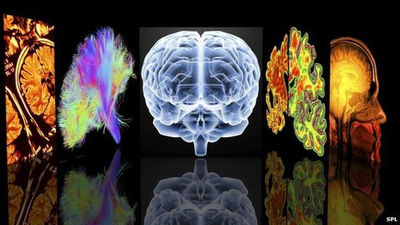A research result that announces that the conversation can not be heard in a noisy place is "hidden hearing loss" will be announced

BySimon Lee
Even people who can hear the contents of a conversation firmly in a quiet place may not be able to hear clearly what they are talking about when talking in crowds of cities or a noisy cafe. Although it may be thought as "It is hard to hear because it is a noisy place", it seems to be "hidden hearing loss", and many researches are done.
Can not Hear in Noisy Places? It's a Real Medical Condition - WSJ
http://www.wsj.com/articles/cant-hear-in-noisy-places-its-a-real-medical-condition-1474909624

Scientists call "hidden hearing loss" that it is difficult to hear the conversation in noisy places. In standard hearing tests, measurements on this "hidden hearing loss" are never done. Therefore, even for "hidden hearing loss", many patients judge that the result of normal hearing test is "normal".
However, if people with "hidden hearing loss" do business negotiations in a noisy place or a crowded restaurant, it is undoubtedly stressful to hear what the other person talks about. The cause of such "hidden hearing loss" is gradually becoming obvious by research in recent years.
According to scientists, "noisy noise" has the effect of reducing the ability of the brain to selectively hear the sound and the ability to understand the words. He is an American language hearing professional associationAmerican Speech-Language-Hearing AssociationMr. Anne Euler, deputy director at the Asahi Shimbun (ASHA), said, "This is a problem that we have been aware of for a long time and the latest research tells us why" hidden hearing loss "will occur , Hearing scientists will need to more actively search for symptoms of "hidden hearing loss". "

ByEmilio Labrador
In the case of adults with hearing impairment, usually the receptor cells in the inner ear organs "Hair cellsDamaged, it becomes a hearing loss due to the deterioration of the function of transferring the acoustic signal to the brain through the nerve. Damage to hair cells varies from aging, trauma, being exposed to noise, and so on.
"Hidden hearing loss" is caused by damage of "synapse" that connects this hair cell with the nerve. Researchers at the University of Michigan revealed that the synapses that connect the hair cells and the nerve path are very brittle and they seem to be permanently damaged before hair cells themselves are damaged. However, as we will see below, we also know that there is hope of treating this synapse damage and restoring it.
What is going to be a mechanism that sounds can be heard in the first place? First of all, the sound enters the ear canal and vibrates the eardrum in the back. Ear beamlets connected to the eardrum are further in the vibrationCochlea, Human beings are able to perceive the sound by transmitting the vibration received by the cochlea to the brain through the nerve as a hair cell as an electrical signal (acoustic signal). "Hidden hearing loss" will occur due to damage of synapse of this hair cell.

Several studies on such "hidden hearing loss" have been done so far.Massachusetts Eye and EarThe research results published by the research team led by Charles Liebermann, an otolaryngologist, in 2009 is to restore rats that have lost 50% of hair cell synapses by exposure to noise We have succeeded. According to research results published by researchers at the University of Michigan in April 2016 in Nature, "Neurotrophin (neurotrophic factor) - a type of protein that promotes nerve growth in rats exposed to noise - 3 ", we succeeded in restoring the synapse of the cochlea.
In addition, at the beginning of September 2016, the research team at the University of Michigan reveals that synaptic damage of hair cells occurs in humans as well. The research team conducted a test to have a group of subjects exposed to loud noises for many hours during college and a group not so exposed to hearing tests in a noisy place and quiet place. As a result of the test, the group of subjects who were exposed to loud noises for hours was overwhelmingly bad compared to the other group of hearing in noisy places. In addition, when the test using the electrode was carried out, it seems that the auditory nerve was significantly decreased in the group of subjects who were exposed to loud sound for hours.
At the moment it is not clear how damage of the cochlear hair cells inhibits understanding the conversation in the noise. Laryberman of the otolaryngologist is comparing the acoustic signal sent to the brain to "photograph". If synapse damage is small, high resolution photographs are sent to the brain, but if the synapse is damaged, the brain will receive a lower resolution picture, where you can tell who you are talking about It is said that it will disappear.
Related Posts:
in Science, Posted by logu_ii







